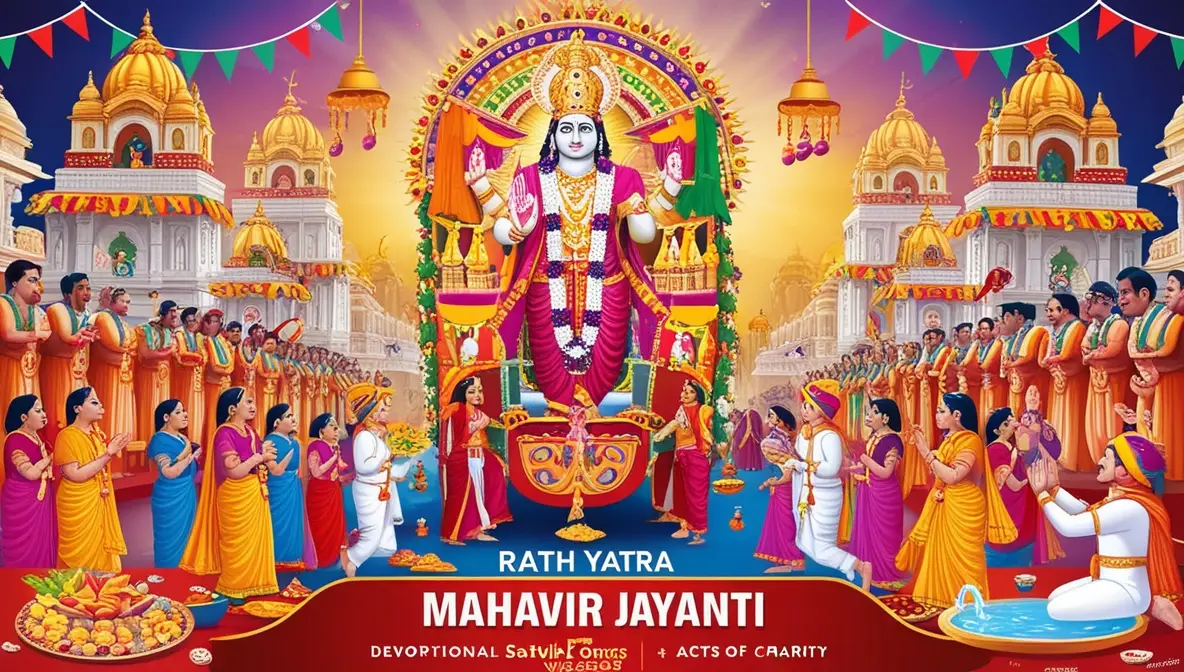Mahavir Jayanti: A Guide to the Celebration of Lord Mahavira’s Birth
Mahavir Jayanti commemorates the birth of Lord Mahavira, the 24th and final Tirthankara in Jainism. This significant festival is celebrated on the 13th day of the rising moon in the Hindu month of Chaitra. As a public holiday in India, it sees schools and government offices closed.

- Friday, 11 April 2025
- Tuesday, 31 March 2026
- Monday, 19 April 2027
- Friday, 07 April 2028
Who is Lord Mahavira?
Lord Mahavira, born Vardhamana Mahavira, was the last Tirthankara in Jainism, a spiritual leader who achieved liberation from the cycle of death and rebirth. Unlike ordinary beings, Tirthankaras transcend attachments and emotions such as anger, pride, and greed.
Historical Background
Mahavira was born to King Siddhartha and Queen Trishala in Kundalagrama, Bihar, on the 13th day of the Chaitra month. There is a difference in belief among Jain sects regarding his birth year: the Digambara sect dates it to 615 BC, while the Svetambara sect suggests 599 BC.
Raised in luxury, Mahavira led a sheltered life until the death of his parents at age 28. This loss exposed him to the harsh realities of the world, prompting him to renounce his royal life. At 30, he left his palace to embark on a spiritual quest. For 12 years, he led an austere life, practicing deep meditation and penance, ultimately attaining enlightenment (Nirvana) at age 72.
Celebrating Mahavir Jayanti
Mahavir Jayanti is marked with vibrant celebrations throughout India:
- Rath Yatra Procession: An idol of Lord Mahavira is paraded on a beautifully decorated chariot, accompanied by devotional songs and celebrations.
- Temple Visits and Rituals: Temples are adorned with flags, and the idol of Lord Mahavira is given a ceremonial bath (abhishek) with milk, then dressed in new clothes and jewelry. Offerings of fruits, sweets, and other items are made.
- Satvik Food and Fasting: Devotees consume fresh vegetarian food, avoiding onions and garlic. Many also fast and meditate to purify their souls.
- Charity and Donations: The community engages in charitable acts, donating money, food, and clothing to those in need.


